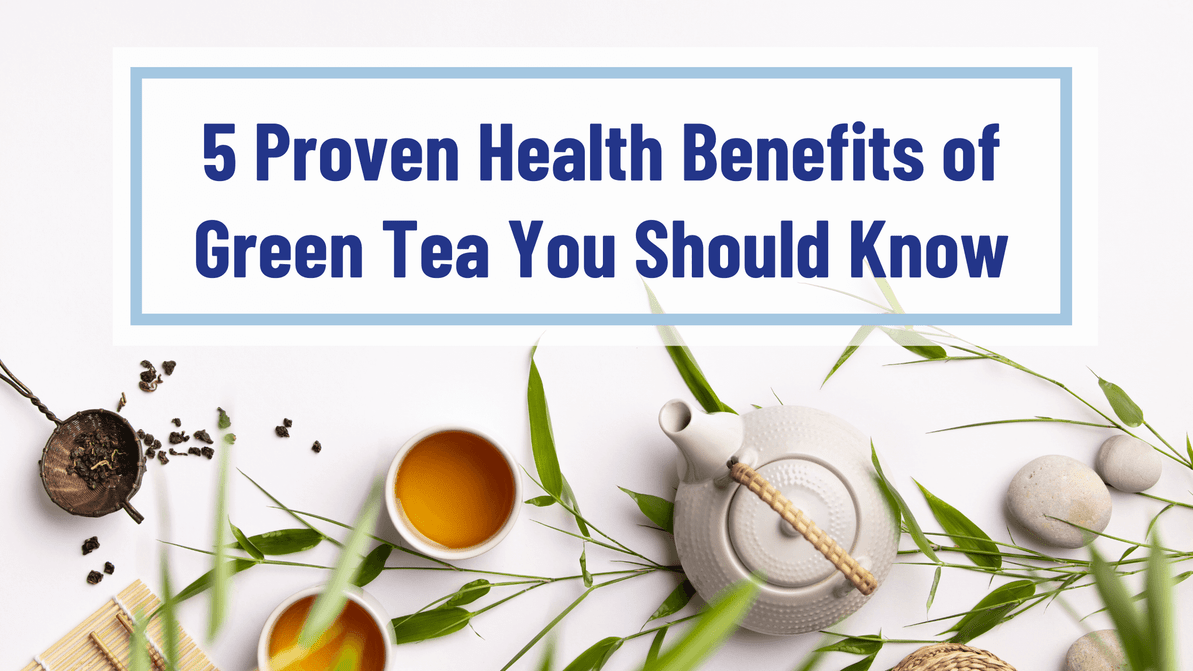5 Proven Health Benefits of Green Tea You Should Know
Green tea has been consumed for thousands of years. They say it is one of the healthiest beverages on the planet. Some may even call it a superfood. And for good reason, as it has many health benefits. It may boost brain function, aid in weight loss, and even protect against certain forms of cancer.
Green tea also provides an energy boost – a gentler one than coffee or even black tea. There are so many other reasons to start drinking it. And we'll tackle them all in this article.
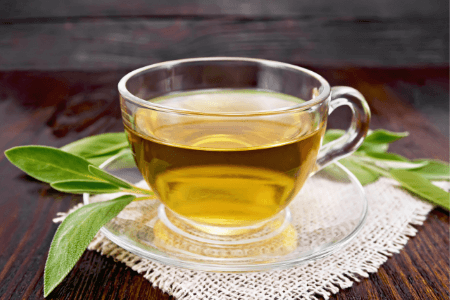
Green tea history
Did you know the first references to green tea date back to 2737 BC? The passion for this beverage was started by the Chinese Emperor Shennong. They say he drank water in which a tea leaf had been boiled accidentally.
Due to its royal beginning, green tea was, for a long time, a drink only the elite Chinese society had access to. It became less expensive and thus accessible to everyone in China in the 14th century.
Its history in the West, however, is much shorter. Europeans were first introduced to green tea in the 16th century. It quickly became one of the most popular beverages in England, though many still prefer the traditional black tea. It soon made its way to America, gaining huge popularity.
Its popularity only continued to grow worldwide. And in the past 50 years, as we've made more advancements in science, we were able to find green tea doesn't just taste good; it's also great for our health.

Health benefits of green tea
1. It is good for your heart
A Japanese study published in 2016 followed over 40,000 adults for 11 years. Participants had ages 40 to 79. They had no history of coronary disease or cancer when the study began. Their objective was to see if and how green tea could help prevent things like cardiovascular disease and even cancer.
During the 11 years, 4,209 participants died of various causes. The study concluded that there was a clear correlation between daily consumption of green tea and heart health. Those who consumed about 5 cups each day seemed to be the healthiest at the end of the study.
Other research looked at how and why green tea may help prevent cardiovascular disease. The results showed this is mostly due to its capacity to lower cholesterol levels.

2. It may lower the risk of developing certain cancers
Green tea is rich in antioxidants, which in turn, may help prevent cancer. Antioxidants help the body fight oxidative stress. Research has shown this type of stress can lead to chronic inflammation which in turn can lead to chronic diseases, including cancer.
A meta-analysis conducted in 2009 found that women who drank green tea regularly had a lower risk of developing breast cancer.
Another study looked at how men were affected by the same tea. It had over 40,000 participants with ages 40 to 69. Of them, 404 had been recently diagnosed with prostate cancer, while 114 were already in an advanced stage. The results showed green tea is helpful in reducing the risk of prostate cancer.
For those already diagnosed, consumption of green tea seemed to slow down the progression of the disease, along with other treatments the participants followed. The benefits, especially for those already diagnosed, seem to be dose-dependent. Participants drinking 5 or more cups per day saw the most benefits.
Finally, another meta-analysis showed people who drink green tea are 42% less likely to develop colorectal cancer.
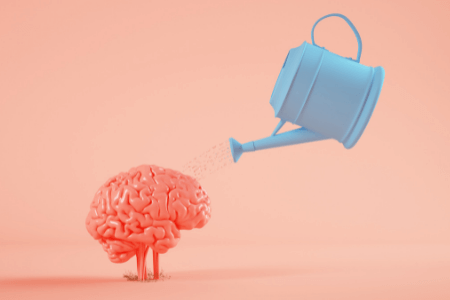
3. It boosts brain health
Green tea is a stimulant due to its caffeine content so it keeps you alert without making you feel jittery like coffee might. But this is not the only way in which it helps your brain.
Research showed that moderate consumption of caffeine – regardless of the source – can help brain function. It boosts your mood, memory, and even your reaction time.
Caffeine also blocks adenosine, an inhibitory neurotransmitter. Instead, it boosts dopamine and norepinephrine, improving concentration, memory, and more.
But caffeine isn't the only ingredient in green tea that helps your brain health. There's also L-theanine, an amino acid that increases the activity of the GABA neurotransmitter. GABA has calming effects, helping ease anxiety and even depression. Some studies also show that the combination of caffeine and L-theanine in green tea is highly beneficial.
Finally, the antioxidants in green tea may help prevent diseases like Alzheimer's or Parkinson's.

4. It may help fight and even prevent type 2 diabetes
The number of people diagnosed with type 2 diabetes has been increasing at alarming rates. Often, this type of diabetes is preceded by insulin resistance.
A study looking at 17 trials and 1133 participants showed green tea might help improve insulin sensitivity. In other words, it could help prevent type 2 diabetes.
Another study looked at 17,413 participants aged 40 to 65 with no history of diabetes or cardiovascular disease. They were followed for five years, and, In the end, it was shown that those who drank the most cups of green tea had a much lower risk of type 2 diabetes.

5. Could aid with weight loss
Green tea is fairly popular among those trying to lose weight. But is there any science behind it? Or is it just a fad? You'll be happy to hear there's some nice scientific evidence in favor of green tea.
For instance, some studies show green tea may boost your metabolic rate, thus increasing fat burning. We need to note that many studies in this area look at green tea extract, usually taken as a supplement. They also often look at healthy, active men, so their findings are somewhat limited.
One study that had a wider variety of participants was conducted by Chinese researchers in 2012; a randomized and placebo-controlled trial that included 182 participants, all moderately overweight. The study showed higher amounts of green tea helped reduce fat, especially in the abdominal area.
There are also studies that show almost no improvements with regard to fat or weight loss. But even these studies agree green tea seems to improve metabolic biomarkers.
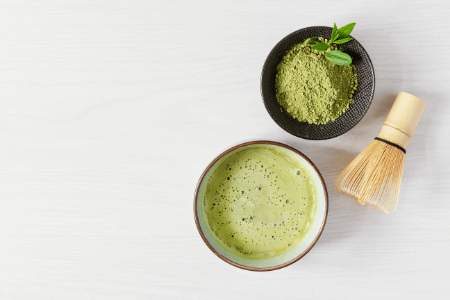
A word on matcha
We can't talk about green tea and not mention matcha. When translated, matcha literally means "powdered tea" and is a form of green tea.
What's the difference? With classic green tea, the leaves are infused or boiled sometimes and then discarded. With matcha, the leaves are turned into powder which is then turned into your drink. In other words, when drinking matcha, you're consuming the tea leaves.
This makes it stronger than its classic counterpart. It's enough to taste it to realize the aroma is more powerful. Few studies concern matcha. But given how it is made, it's safe to assume it has many if not all the health benefits of green tea.
There's also the fun fact that matcha can be incorporated into various foods. Smoothies, pudding, muffins, and even stir fry are some options.
One concern with matcha is lead contamination. Even the plants grown organically are prone to absorbing it from the environment. With traditional green tea, 90% or more of the lead remains in the discarded leaf, so contamination is not a concern. But with matcha, you're consuming the leaf, absorbing all the lead in it. Should you just drink traditional tea then? Not necessarily. But it is best to have a maximum of 1 cup of matcha per day.
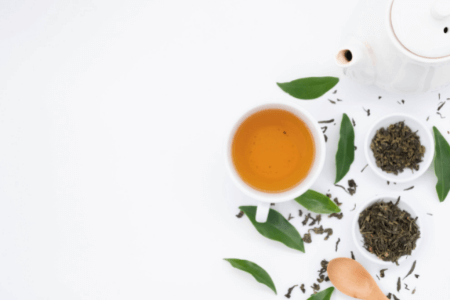
The bottom line
Green tea is almost a superfood. It protects your heart and brain and may even help fight against cancer.
A healthy lifestyle should always come first, but we know that sometimes, you need a little help. While we can't help you with your green tea intake as we don't sell it at the moment, we can help with other antioxidants and green supplements to boost your health.
How do you feel about green tea? Do you like it? Do you prefer matcha? Join us on Facebook and let us know.
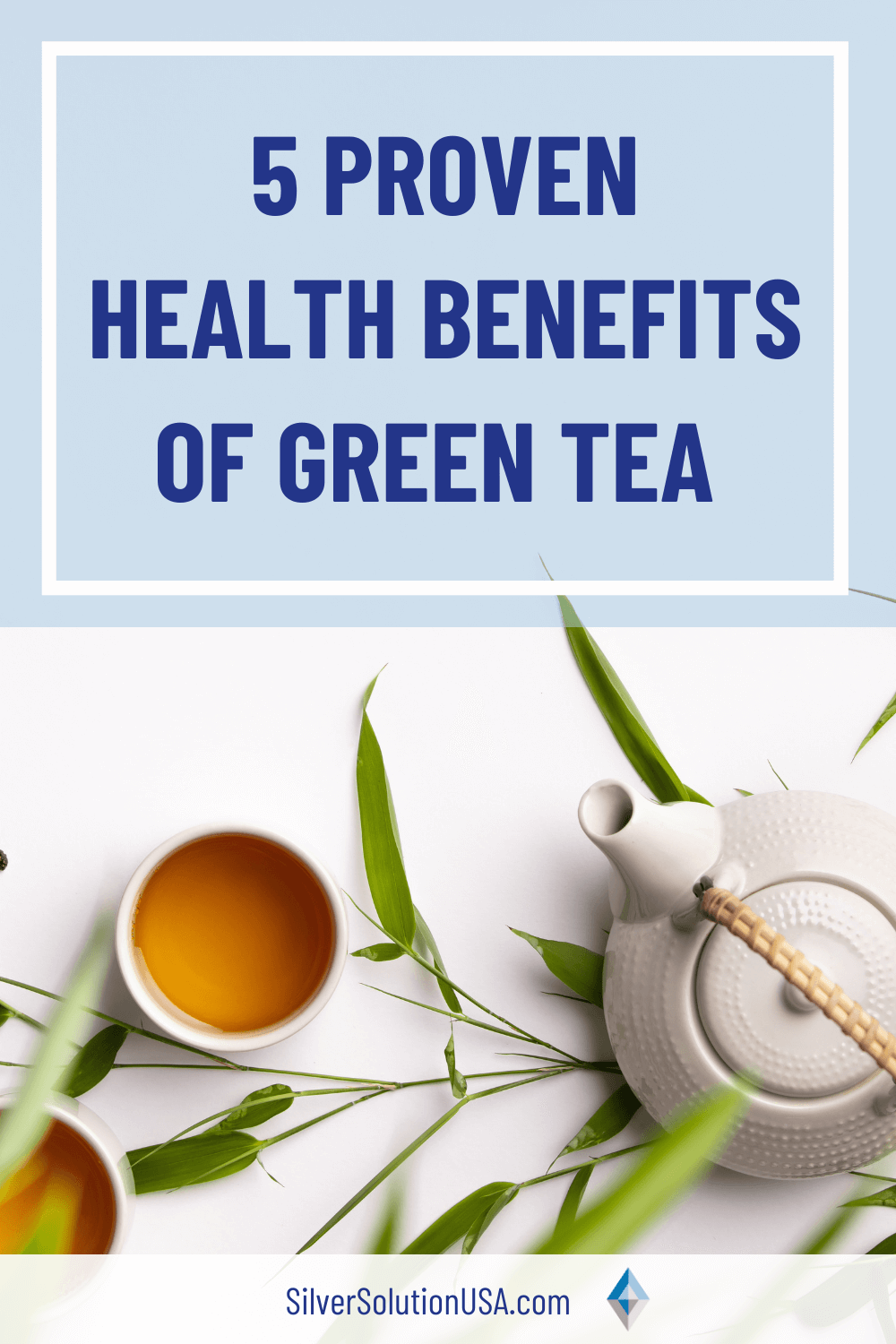
Health/Medical Disclaimer
This blog post does not provide health or medical advice. This blog post is for informational and educational purposes only and is not a substitute for professional health or medical advice. Before taking any actions based upon such information, we encourage you to consult with the appropriate medical and healthcare professionals. We do not provide any kind of health or medical advice. The use or reliance of any information contained on this blog is solely at your own risk.
Sources
http://www.greenteas.com/history-of-green-tea.php
https://jamanetwork.com/journals/jama/fullarticle/203337
https://www.cochranelibrary.com/cdsr/doi/10.1002/14651858.CD009934.pub2/full
https://academic.oup.com/aje/article/167/1/71/185454
https://pubmed.ncbi.nlm.nih.gov/28454102/
https://onlinelibrary.wiley.com/doi/full/10.1111/j.1467-3010.2007.00665.x
https://pubmed.ncbi.nlm.nih.gov/1356551/
https://academic.oup.com/jn/article/138/8/1572S/4750819
https://pubmed.ncbi.nlm.nih.gov/15350981/
https://academic.oup.com/ajcn/article/98/2/340/4577179
https://pubmed.ncbi.nlm.nih.gov/16618952/
https://onlinelibrary.wiley.com/doi/full/10.1038/oby.2009.256
https://www.ncbi.nlm.nih.gov/pmc/articles/PMC2966548/
Recent Posts
-
Are sunscreen ingredients harmful?
Sunny days can bring a lot of fun. Going out for a swim, spending time in nature, or relaxing on the …18th Mar 2024 -
The Veggie Debate: Does Cooking Vegetables Destroy Nutrients and the Best Ways to Cook Them
Vegetables are one of the healthiest foods you can choose. Some people downright hate them, while so …4th Mar 2024 -
Best Foods for COVID Recovery and Prevention
A few years ago, a new virus took the world by surprise. COVID-19 may look like the flu on the surfa …19th Feb 2024

